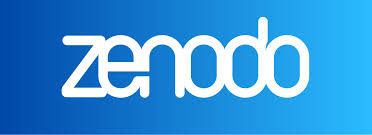SJIF: 5.966, IJIFACTOR: 3.8, RANKING: A+
Call for Paper - January – 2026 Edition
SJIF: 5.966, IJIFACTOR: 3.8, RANKING: A+
IJATCA solicits original research papers for the January – 2026 Edition.
Last date of manuscript submission is January 30, 2026.
Article Withdrawal Policy
International Journal of Advanced Trends in Computer Applications (IJATCA) is a leading international e-journal for publication of new ideas. IJATCA is a peer-reviewed, open access scholarly journal that publishes original research works and review articles in all areas. This is an open access journal which means that all content is freely available without any charges to the user or his/her institution. International Journal of Advanced Trends in Computer Applications (IJATCA) is having ISSN 2395-3519 (online), half yearly international journal, being published by Foundation of Computer Applications (FCA), since year 2015.
IJATCA recognizes the importance of the integrity and completeness of the scholarly record to researchers and librarians and attaches the highest importance to maintaining trust in the authority of its electronic archive.
IJATCA Policy
It is a general principle of scholarly communication that the editor of a learned journal is solely and independently responsible for deciding which articles submitted to the journal shall be published. In making this decision the editor is guided by policies of the journal’s editorial board and constrained by such legal requirements in force regarding libel, copyright infringement and plagiarism. An outcome of this principle is the importance of the scholarly archive as a permanent, historic record of the transactions of scholarship. Articles that have been published shall remain extant, exact and unaltered as far as is possible. However, very occasionally circumstances may arise where an article is published that must later be retracted or even removed. Such actions must not be undertaken lightly and can only occur under exceptional circumstances.
Article withdrawal
Only used for Articles in Press which represent early versions of articles and sometimes contain errors, or may have been accidentally submitted twice. Occasionally, but less frequently, the articles may represent infringements of professional ethical codes, such as multiple submission, bogus claims of authorship, plagiarism, fraudulent use of data or the like. Articles in Press (articles that have been accepted for publication but which have not been formally published and will not yet have the complete volume/issue/page information) that include errors, or are discovered to be accidental duplicates of other published article(s), or are determined to violate our journal publishing ethics guidelines in the view of the editors (such as multiple submission, bogus claims of authorship, plagiarism, fraudulent use of data or the like), may be “Withdrawn” from IJATCA. Withdrawn means that the article content (HTML and PDF) is removed from IJATCA archives.
Article retraction
Infringements of professional ethical codes, such as multiple submission, bogus claims of authorship, plagiarism, fraudulent use of data or the like. Occasionally a retraction will be used to correct errors in submission or publication. The retraction of an article by its authors or the editor under the advice of members of the scholarly community has long been an occasional feature of the learned world. Standards for dealing with retractions have been developed by a number of library and scholarly bodies, and this best practice is adopted for article retraction by IJATCA:
- A retraction note titled “Retraction: [article title]” signed by the authors and/or the editor is published in the paginated part of a subsequent issue of the journal and listed in the contents list.
- In the electronic version, a link is made to the original article.
- The online article is preceded by a screen containing the retraction note. It is to this screen that the link resolves; the reader can then proceed to the article itself.
Article removal: legal limitations
In an extremely limited number of cases, it may be necessary to remove an article from the online database. This will only occur where the article is clearly defamatory, or infringes others’ legal rights, or where the article is, or we have good reason to expect it will be, the subject of a court order, or where the article, if acted upon, might pose a serious health risk. In these circumstances, the article will be removed from the IJATCA archives.
Article replacement
In cases where the article, if acted upon, might pose a serious health risk, the authors of the original article may wish to retract the flawed original and replace it with a corrected version. In these circumstances the procedures for retraction will be followed and corrected article will be re-published.
- Archives
- Vision and Mission
- Author’s Guidelines
- Journal Coverage or Topics
- Online Research Paper Submission
- Peer Review
What is peer review? - Open Access Overview
- ISSN:: 2395-3519 (Online)
- Statistical Data
(SJIF Impact Factor: 5.966 PIF: 3.460 IJIFACTOR 3.8, RANKING: A+ - Indexing
(GOOGLE SCHOLAR , Web of Science RESEARCHERID, ORCiD, SJIF, PIF, IJIFACTOR - Join Editorial Board
- Join Reviewer Board
- Join as Member
- Members
- Ethics and Policies
- Publication Ethics and Publication Malpractice Statement
- Article Withdrawal Policy
- Copyright Policy
- Plagiarism Policy
- Refund Policy
- Privacy Policy
- FAQ
- Subscribe for updates
- Publication Fee Details
- Recent Issue
- Special Issue
- Ownership Declaration
Be a Research Volunteer
IJATCA is fuelled by a highly dispersed and geographically separated team of dynamic volunteers. IJATCA calls volunteers interested to contribute towards the scientific development in the field of Computer Science.
















